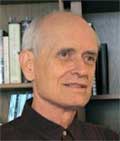Peace Corps Writers publishes Jon Thiem’s Letters from Ghana 1968–1970
Several years back, author/editor Jon Thiem mentioned to a young woman (with a Ph.D.) that in the late 1960s he had served in the Peace Corps in Ghana, West Africa. She thought he was talking about a United Nations Peace Keeping operation! Taken by surprise, he laughed and thanked her for the alternative biography she had bestowed on him. Then he told her about Peace Corps. The incident was what initially inspired him to compile this collection Letters from Ghana 1968-1970: A Peace Corps Chronicle
A combination of historical forces in the 1960s induced tens of thousands of (mainly) young U.S. volunteers to live in countries other than their own and engage in humanitarian activities. The body of letters that resulted from this great Peace Corps diaspora is a rich yet neglected legacy.
 From August 1968 to June 1970, Thiem was a Peace Corps Volunteer in a village in the rain forest of southern Ghana. There he taught English literature at the district secondary school. Every two weeks or so, he sent letters and audio tapes to the States, describing his day-to-day impressions of Ghana — the miseries and splendors of life in the tropics.
From August 1968 to June 1970, Thiem was a Peace Corps Volunteer in a village in the rain forest of southern Ghana. There he taught English literature at the district secondary school. Every two weeks or so, he sent letters and audio tapes to the States, describing his day-to-day impressions of Ghana — the miseries and splendors of life in the tropics.
These letters of Thiem and two other U.S. Volunteers offer raw, immediate impressions of the daily routines, hard living, and cross-cultural labyrinths experienced by teachers in a rural equatorial environment. Composed during Peace Corps service, they bear the living marks of their own genesis. These texts are not memoirs informed by hindsight, but naive testimonies, fresh and ignorant of the future, filled with astonishment.
Thiem’s background in the organization Students for a Democratic Society (SDS) gives this collection, unlike many others, a lot of political content, which takes in U.S. Vietnam policy, dramatic government changes in Ghana, school politics, village power struggles, and the controversies about Peace Corps’ mission. The letters not only supply fascinating pictures of the United States as seen through Ghanaian eyes (in an era of limited access to world news), but also show how U.S. volunteers in Ghana struggle to grasp the eruptions of civil conflict and violence at home.
Peace Corps set in motion energetic and far-reaching development campaigns, yet its efforts were denounced by both the political right and the left (for reasons discussed in the Introduction and letters). Its objectives and effectiveness remain controversial to this day. With some justification, Peace Corps Volunteers have been labeled “secular missionaries.”
This edition of letters takes into account recent studies that challenge the ideologies and political motives underlying humanitarian programs like Peace Corps. It is true that many letters highlight the troubling contradictions that arise when a development organization intervenes in a society whose purposes and norms are resistant to modernity. And yet the letters also complicate some of this easy fault-finding, which underestimates both the beneficial results achieved by modernizers and the strong desire on the part of African leaders and their constituents to improve education and health care.
Another strand in this book tracks the efforts of Thiem and his Ghanaian colleague “Ohene” Owoahene to collect and translate Asante poems, an endangered oral tradition. It is ironic that Thiem went to rural Ghana to encourage modern thinking, but ended up becoming spellbound by the mythical world of Asante court poetry, which celebrates the bloody deeds and magical powers of ancient kings.
The letters by writers other than Thiem make this a truly polyphonic — sometimes cacophonic — collection. There are texts by other Peace Corps Volunteers and by correspondents from the U.S. The eloquent voices of Ghanaian nationals — teachers, students, politicians, and villagers — are “heard” in the letters and in the transcribed audio tapes.
Other distinctive features of Letters from Ghana 1968–1970 are an incisive introduction and individual commentaries that situate the letters in their historical, geographical, and personal contexts. The book includes a map, glossary, timeline, and black and white photos.
•
 After leaving Ghana, Jon Thiem took up graduate study at Indiana University, where he received his doctorate in Comparative Literature. He is professor emeritus of English at Colorado State University and has lived in Colorado for the last 35 years. It was through the Peace Corps that he discovered his vocation as a teacher, translator, and scholar of literature. His numerous publications include Lorenzo de’ Medici: Selected Poems and Prose (1991) and Rabbit Creek Country: Three Ranching Lives in the Heart of the Mountain West (2008), written in collaboration with his colleague Deborah Dimon. Rabbit Creek Country was a Finalist for the Colorado Book Award in 2009.
After leaving Ghana, Jon Thiem took up graduate study at Indiana University, where he received his doctorate in Comparative Literature. He is professor emeritus of English at Colorado State University and has lived in Colorado for the last 35 years. It was through the Peace Corps that he discovered his vocation as a teacher, translator, and scholar of literature. His numerous publications include Lorenzo de’ Medici: Selected Poems and Prose (1991) and Rabbit Creek Country: Three Ranching Lives in the Heart of the Mountain West (2008), written in collaboration with his colleague Deborah Dimon. Rabbit Creek Country was a Finalist for the Colorado Book Award in 2009.
Thiem and his Ghanaian colleague “Ohene” Owoahene eventually published their versions of Asante court poems in the journal Translation (Winter, 1978–79).
Jon now has a website for Letters from Ghana 1968–1970.
No comments yet.
Add your comment